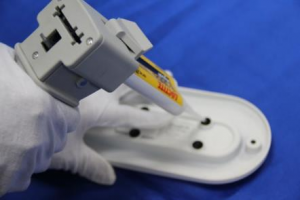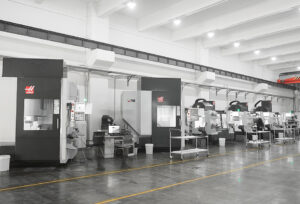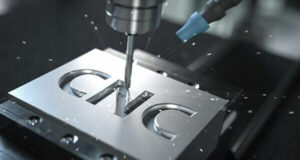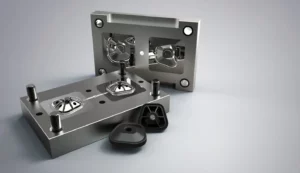Tips to Optimize your design for CNC machining
CNC Machining is used to manufacture machined parts that have tight tolerances, complex geometries and exceptional strength.
The process is widely used because of its quick turnaround and cost efficiency. CNC machining also requires no tooling and will produce finished parts from a 3D model design file. In order to fully optimize your design for CNC machining, here are a couple of tips you should consider:
1. Avoid Small Features
Unless necessary, small features will typically increase the difficulty, time and effort spent on a part. As most CNC machines have 2.5mm as their minimum tool diameter, special features smaller than this size will require special tools to deliver. This will increase the cost of machining per part and may affect your overall turnaround time for the entire project.
2. Avoid Deep Cavities
Taking consideration of your design’s depth-to-width ratio will increase your design suitability for CNC machining. Design cavities that span more than 4-5 times the diameter of the tool can be considered to be deep. If you have a 10mm wide cavity, your depth should be around 40mm. Having cavities that are too deep will also lead to tool deflection, tool hanging or tool fracture, increasing your monthly replacement and maintenance costs.
3. Round your internal corners
CNC milling tools generally have a cylindrical shape. What this means is that when you cut internal walls, you can expect to have radii in your vertical corners. When designing for CNC machined parts, try to add a radius that is at least 33 percent of the depth of your cavity, and maintain the same radius when working across all internal edges.
4. Avoid thin walls and other features that cannot be machined
Avoid designing thin walls just for the sake of it. CNC parts that have thin walls are more likely to break and chatter and will consequently affect the precision and accuracy when machining the design. This will also result in extra machining costs and time. As a rule of thumb, ensure that your walls are at least 1 ? mm thick for plastic parts and 0.8mm thick for metal parts.
As is the case with thin walls, not all designing features are machinable. Try to avoid unnecessary features that will only make the design complex and difficult to make. In order to avoid this, have a firm understanding of the machine you’re using for the process. Knowing its guidelines will aid you in optimizing your parts for the process.
5. Avoid unnecessary letterings and texts
Rather than including your texts, symbols and letterings into the design, consider other surface finish and post-machining methods to add text and engravings to the surface of your machined parts. Adding design fonts and text to the machining process will only increase the cost and completion time of the project.
6. Split parts with extremelycomplex geometry
Although manufacturing a complex part will remove the need for assembly post manufacture, machining multiple simple parts is generally less expensive that making a composite part with extremely complex geometry.
Parts with complex geometry will require hours of machining to get past material and may result in more material waste. Because of the complexity of the design, the cost of correcting errors on a complex part may be higher than simple parts. Sometimes, complex parts may need to be totally redone. Try to split complex parts into multiple parts with simple geometry to avoid incurring higher costs of machining that arises from designing parts with extremely complicated geometries.
FirstPart CNC Machining Service in China
At Firstpart, we have a full understanding of the CNC machining process, working with our team from the onset can help you avoid all the common pitfalls from CNC designing and get an optimal model that helps you save cost and optimize output.
FirstPart is one of China’s leading manufacturing hub for Additive, CNC and Conventional manufacturing techniques. We boast of excellent in-house capacity, labor force and logistics while delivering exceptional value for money. Our array of services include CNC machining, 3D printing, Rapid Tooling, Die casting, Rapid prototyping, Plastic Injection Molding, Urethane Casting, Aluminum Extrusion, Post-machining/Finishing services and much more.
Our services are flexible, saleable and innovative, with a team of engineers and design experts available to support you through your entire product development cycle.






